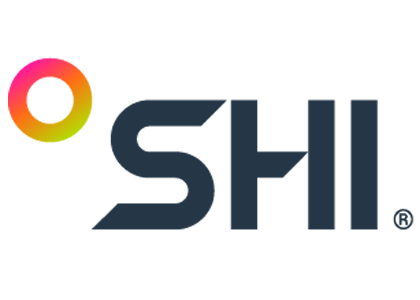The AI PC: Introducing the smart partner that makes impossible look easy:
Today’s AI PC is more than OK.

The market for artificial intelligence personal computers (AI PCs) is exploding with shipments predicted to rise from about 19% of total PC shipments this year up to 80% by 2028. Why? Because we’re entering a new era where PCs aren’t just tools; they’re intelligent accomplices, thanks to strides in machine learning, natural language processing, and hardware tech. This is no incremental upgrade but is rather a game-changing evolution, with Apple, Microsoft, and Google leading the pack. Across industries, AI PCs are set to redefine our interaction with technology, becoming a seamless extension of our daily lives. Get ready; the future of computing is here, and it’s personal.
What makes them tick?
From sophisticated machine learning algorithms to powerful hardware components, several technologies enhance the capabilities and performance of AI PCs and are making the personal computing revolution possible. Let’s explore:
Machine learning and deep learning: These algorithms are the cornerstone of AI PC functionalities. They enable AI PCs to independently analyze data and identify patterns. Innovations range from basic linear regression to complex neural networks.
 Natural language processing (NLP): Essential for making interactions with computers more intuitive, NLP technologies allow AI PCs to understand and generate human language. They facilitate advancements in speech recognition, sentiment analysis, and machine translation.
Natural language processing (NLP): Essential for making interactions with computers more intuitive, NLP technologies allow AI PCs to understand and generate human language. They facilitate advancements in speech recognition, sentiment analysis, and machine translation.
Neural processing units (NPUs): These processors are at the forefront of accelerating AI tasks in modern technology, evident in Windows’ Copilot+ PCs and Apple’s M-series devices. Their significance was highlighted with Microsoft’s announcement of a partnership with Qualcomm for NPU-integrated chips and Apple’s integration of Siri with ChatGPT in iOS 18, exclusive to newer models with NPUs.
Advanced hardware: The performance leap in AI PCs is heavily reliant on specialized hardware such as GPUs, TPUs, and AI accelerators, designed to efficiently handle AI computations.
Edge computing: This technology enhances the efficiency of AI PCs by bringing computation closer to the data source. It significantly reduces latency and bandwidth usage, which is crucial for real-time applications.
AI-specific operating systems and IoT integration: Specialized operating systems optimize the use of AI resources, while the integration with the Internet of Things (IoT) expands the capabilities of AI PCs, from smart home automation to industrial optimization.
Who’s already using them?
The changes powered by AI PCs aren’t happening in a vacuum. In fact, they’re already enhancing our foundational industries in striking ways, to say the least.
In healthcare, AI has been a game-changer. According to McKinsey & Company, it’s on track to bring about $150 billion in annual savings to the U.S. healthcare economy by 2026. How? By sharpening diagnostic accuracy and enhancing patient care. For example, IBM’s Watson for Oncology is assisting doctors in crafting more precise treatment plans by analyzing vast amounts of medical data.
The finance sector isn’t left behind, either. JPMorgan Chase’s COiN platform is enabling quicker and more efficient legal document analysis. Even the U.S. Treasury is taking advantage, recovering $375M in 2023 as a result of AI-enhanced fraud detection.
Education is also feeling AI’s positive impact, with technology providing personalized learning experiences that cater to individual student needs. In this vein, Carnegie Learning’s AI-driven software adjusts to students’ learning styles, offering customized materials that improve educational outcomes.
In essence, AI has earned its reputation as a robust tool that’s capable of transforming entire sectors, promising a smarter, more efficient, and personalized future.
Any potential problems or predictions?
Despite their rapid growth and potential, the AI PC market faces hurdles like data privacy concerns, high costs, and the need for specialized development skills. Ongoing research and development efforts, however, are expected to mitigate these issues and foster broader AI PC adoption.
Some of those very advancements are just on the horizon, promising to tackle the challenges we face today and making AI much more accessible to everyone. In short, we’re looking at a future where AI is a core component of our computing devices across all sectors. Here’s what’s coming:
Smarter AI user interfaces: Experience interfaces that are not just smart but feel intuitive, making our interactions with technology smoother and more natural.
Hybrid AI systems: Imagine combining the power of AI with groundbreaking technologies like blockchain. Hybrid AI merges machine learning (which uses statistical models to analyze data) with symbolic AI (which translates insights into meaning). By integrating the strengths of both techniques, you can achieve better results than those from each approach individually.
Beefed-up security: With AI in our corner, expect to see a significant leap in how we protect our digital lives, including increased visibility, control, and trust in enterprise generative AI projects. For businesses and consumers eager to stay ahead of the curve, monitoring these developments in AI-powered PCs will be key.
How can I make it happen?
It’s already happening. AI-powered PCs are driving significant growth and innovation across industries by enhancing user experiences and pushing innovation. With the technology evolving rapidly, integrating AI into personal computing prepares businesses and consumers for a future of AI-driven efficiencies and personalization. SHI offers comprehensive services to help secure these solutions, spanning all major AI hardware, software, and hybrid cloud AI architectures. Incorporating AI into your operation could be the key to outpacing the competition. SHI is here to assist in selecting, deploying, and managing tailored AI solutions for your enterprise. Talk about personal.
Reach out today to explore how we can support your journey toward AI integration.
Matt Oaks is a Sr. Partner Strategy Manager with more than 15 years’ experience selling and marketing technology-based solutions and business services for some of the world’s largest organizations. Matt’s expertise spans solution selling, marketing, global application integration, IoT partner management, and development.




